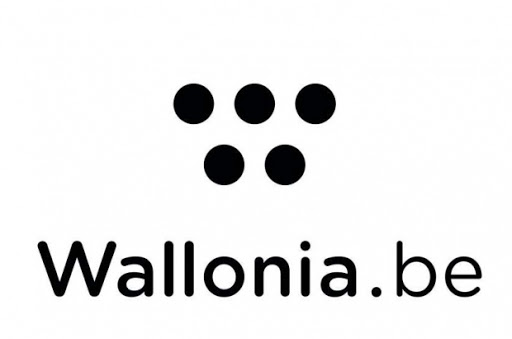The University of Namur research landscape includes 11 transdisciplinary research institutes. Research activities lean on state-of-the-art scientific equipment, technical knowhow and sharp expertise, grouped in 10 technology platforms (http://platforms.unamur.be/). Researchers develop inter- and transdisciplinary projects in fundamental as well as in applied research. They are accessible to the scientific community as well as to industries. The University of Namur maintains the appropriate balance between fundamental and applied research.

Namur Digital Institute - NaDI
Bruno Dumas/Alexandre de Streel (nadi@unamur.be, +32 (0)81 72 49 75)
Grouping five research centers from various disciplines, ranging from sociology, philosophy, law, management to computer science, the Namur Digital Research Institute offers a unique multidisciplinary expertise to all areas of informatics, its applications and its social impact.
The conviction that led to the creation of NaDI is the need to cross disciplinary perspectives on the ubiquitous digital technology that changes the lives and behaviours of our administrations, companies and individual citizens. NaDI currently brings together about 215 researchers and works on many research projects related to the digital technology, both at the Regional, Belgian and European levels.
Among the main expertises offered by NaDI are formal methods, man-machine interfaces, requirement engineering, modeling techniques to reason and design complex software systems, testing, quality insurance, software product lines, databases, big data, machine
learning and more generally artificial intelligence, security, privacy, ethics by design, technology assessment and legal reasoning.
Namur Institute for Complex Systems - naXys
Anne-Sophie LIBERT (naxys@unamur.be, +32 (0)81 72 49 46)
From the space debris to the whole universe, in the solar and extrasolar systems, naXys, the Namur Institute for Complex Systems is renowned for its numerical and analytical approaches of space dynamics. The naXys institute has a strong research component in orbital motions, space geodesy and physical cosmology. The researchers are partners of several space missions (BepiColombo, Euclid, Juice, Cheops) where their theoretical approaches are appreciated in the mission analysis and preparation phases; they contribute to the modeling of the dynamical problems and observables, as well as to the building and refining of suitable numerical software and tools (frequency analysis, efficient algorithms, statistical forecasts, chaos detection, stability criteria).
In many industrial and research projects, one attempts to improve a system by modifying its decision variables subject to constraints: this is optimization. naXys focuses on the numerical solution of such problems that is the effective calculation of the best values for the decision variables. It focuses in particular on nonconvex and large scale instances. Both theoretical questions, such as design and convergence properties of the algorithms, and associated software issues are studied.
The Synthesis, Irradiation & Analysis of Materials platform - SIAM
Pierre LOUETTE (pierre.louette@unamur.be , +32 (0)81 72 45 89)
The Synthesis, Irradiation & Analysis of Materials platform (SIAM) expertise in materials characterization relies on its capacity to use and combine various spectroscopies (XPS, ToF-SIMS & IBA). These techniques provide a complete evaluation of almost any kind of sample such as: metals, welds, glass, polymers, powders, liquids, in vivo biological material, ...
SIAM has several facilities for functionalizing materials and/or synthesizing thin films by plasma treatments.
Our experience, from several Regional and European Commission funded projects, qualify us for the analysis of complex samples such as: nanoparticles inside complex matrices (food, culture medium, cells from in vitro experiments and organs from in vivo experiments).
The Synthesis, Irradiation & Analysis of Materials platform (SIAM) is active in both the synthesis and the characterization of materials and nanomaterials. SIAM performs fundamental research in materials sciences, surfaces, interfaces and ion/matter interaction. Different kinds of materials and/or samples, coming from materials sciences, life sciences but not only (materials evaluation inside a biological matrix) can be thoroughly analyzed.
One of SIAM’s major assets is a unique set of expertise in different spectroscopies techniques (high and lower energies) which can be coupled to nuclear analysis. This, thanks to a state-of-the-art equipment, a philosophy of constant development and a highly qualified team.
SIAM can provide characterization and/or analysis solution in fields such as: photovoltaic, intelligent coatings, nanomaterials, public health, biomedical applications to name a few. Our client’s portfolio covers several industrial sectors, SMEs and academia. Our clients beneficiate of an overall technical approach (one stop shop).
Laboratory of Chemistry and Electrochemistry of Surfaces - CES
Zineb MEKHALIF (zineb.mekhalif@unamur.be, +32(0)81 72 52 30)
The CES research focuses on the design of surface and interface materials and their fabrication by chemical processes, in particular electrochemistry, self-assembly and soft chemistry. These surface materials can be thin or ultra-thin organic and / or inorganic film assemblies on metal substrates, metal oxides, and polymeric films. The team's research fits naturally into the general theme of structured surface materials considering micrometric and / or nanometric scales. The studies are carried out with the aim of maximizing the performances (desired properties, durability, reliability, cost and ecological constraints), the chemical selectivity of the compounds to the targets (surfaces, polymer matrices, etc.) and the control of structure at the molecular level.
Rue de Bruxelles 61
5000 Namur
Belgique
